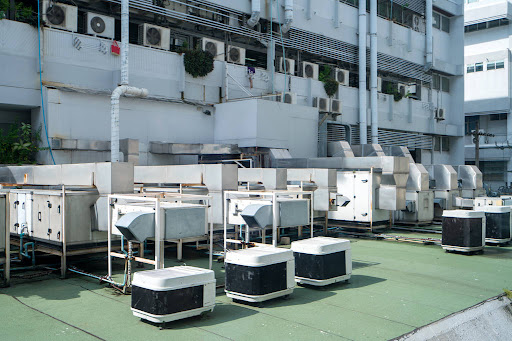Introduction
Mini systems have become increasingly popular in recent years due to their small size, portability, and ability to provide powerful computing capabilities. A mini system is a type of computer system that is typically much smaller than a typical desktop or laptop computer. It generally uses one or more microprocessors and is made up of components such as memory, storage, input/output (I/O) devices, and support circuits.
The main benefit of mini systems is their convenience and portability. They are much easier to transport than traditional computers since they are so small. Mini systems also provide users with powerful computing capabilities in an even smaller form factor than laptops or desktops. This makes them ideal for applications where space is at a premium such as medical offices, research labs, retail stores, and other places where computing power needs to be within reach but without taking up too much space.
Another advantage of mini systems such as split system Melbourne Sis is cost savings when compared to larger computers such as laptops or desktops. Since they use fewer components than larger computers they can be produced at lower costs which can result in significant savings for consumers who may not need the full capabilities offered by more expensive models.
Types of Mini Systems
Mini Systems are becoming increasingly popular as businesses look for ways to reduce costs and increase efficiency. They offer a more compact and cost-effective way to manage data, applications, and other IT needs. There are three main types of mini systems: cloud-based solutions, on-premise solutions, and hybrid solutions.
Cloud-Based Solutions
Cloud-based solutions are the most popular type of mini-system available. With this approach, businesses can access their systems from anywhere with an internet connection rather than having to host them at a physical location. This allows for remote access from any device or location with an internet connection without the need for additional hardware or software investments. Additionally, cloud-based solutions can be scaled up or down depending on business needs without needing significant investments in new equipment or infrastructure changes.
On-Premise Solutions
On-premise mini systems allow businesses to install their own hardware and software at a physical location in order to maintain control over their IT environment. This approach is often less expensive than cloud options; however, it does require a larger initial investment in hardware that may become obsolete over time as technology advances rapidly today.
Advantages and Disadvantages of Mini Systems
With the increasing demand for small, cost-effective, and easy-to-manage systems, mini-systems have become a popular choice for businesses and individuals. Mini systems offer many advantages, but there are also drawbacks that must be considered before investing in one. In this article, we will discuss the advantages and disadvantages of mini systems with a focus on cost efficiency, scalability, and security concerns.
A major advantage of mini systems is cost efficiency. Since these types of systems are designed to be light on resources while still being powerful enough to meet most needs, they tend to be much cheaper than their bigger counterparts. This makes them ideal for those who want maximum value out of their technology investments without breaking the bank. Additionally, since they don’t require as many physical components as larger models do – such as processors or additional memory – they can often be upgraded when necessary at a fraction of the cost compared to buying a brand-new system altogether.
Another advantage is scalability; with mini systems, you can easily expand or upgrade them depending on your needs without having to completely replace them with something bigger or more expensive down the line.
Conclusion
Split mini systems are an attractive choice for those who want the convenience of a central air conditioning system with the efficiency and affordability of a ductless mini-split system. They provide excellent temperature control, energy efficiency, and cost savings compared to traditional AC systems. Split mini systems are easy to install and maintain, making them ideal for both residential and commercial applications. With their low upfront cost and energy savings over time, split mini systems are an excellent option for those looking to upgrade their air conditioning system without breaking the bank.

